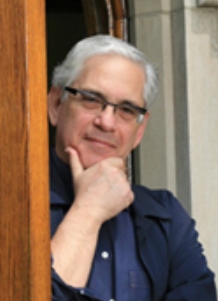Alexander Nehamas - March 22, 2010
Edward N. Carpenter II Class of 1943 Professor in Humanities, Professor of Philosophy, and Professor of Comparative Literature, Princeton University
"Because It Was He, Because It Was I: The Good of Friendship"
8:00 PM Monday, March 22, 2010
University Theatre
An internationally renowned philosopher, Professor Nehamas is the author of the classic Nietzsche: Life as Literature and many other books. Writing in opposition to the dominant trend in recent years to make philosophy look more and more like a science, he has set himself the task of reclaiming the defining tradition of ancient Greek philosophy, as a quest to master the art of living. He will speak about the place of friendship in a philosophically engaged life.
"Friendship and Other Non-Moral Values"
3:10 PM Monday, March 22, 2010
Gallagher Business Building 123
You are cordially invited to attend a seminar with Alexander Nehamas, an internationally-known philosopher. Born in Athens, of Spanish citizenship, and a permanent resident in the United States, Professor Nehamas earned a Ph.D. in philosophy at Princeton University in 1971. He studied there with the eminent scholar of ancient philosophy, Gregory Vlastos. He then taught at the University of Pittsburgh from 1971 to 1986 and the University of Pennsylvania from 1986 to 1990 before returning to Princeton, where he has been teaching for the past twenty years. His major book publications include the classic Nietzsche: Life as Literature (1985), as well as The Art of Living: Socratic Reflections from Plato to Foucault (1998), Virtues of Authenticity: Essays on Plato and Socrates (1999), and Only a Promise of Happiness: The Place of Beauty in the World of Art (2007). He has translated Plato's Symposium (1989) and Phaedrus (1995). His published articles and reviews have appeared in leading scholarly journals. David Carrier, the philosopher of art history, describes his writing style as a "combination of bold speculation and extreme fastidiousness" in the service of determined lucidity. A renowned lecturer, he has spoken before audiences the world over, and in 2008 delivered the Gifford Lectures at the University of Edinburgh about friendship and its place in life. His main intellectual interests concern ancient Greek philosophy, the philosophy of art, European philosophy, and literary theory. He opposes the dominant trend of recent years to make philosophy look more and more like a science by means of adopting a writing style that emphasizes "clunky, boring, deadly depth." Instead, he has set himself the task of reclaiming the defining tradition of ancient Greek philosophy, as a quest to master the art of living. As he puts it: "I am an aesthete; that is the one ‘sin' I confess to. If I do have a public message, it is that aesthetic facts-beauty, style and elegance, grace and connectedness-are crucial to life."
